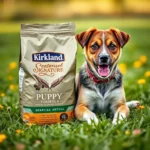
Introduction
Nutrition plays a vital role in the health and well-being of dogs, particularly small breeds. These furry companions often have unique dietary needs due to their size and metabolism, which can make finding appropriate food a challenge—especially for those that suffer from allergies. Allergies in dogs can manifest in various ways and significantly impact their dietary requirements. This blog post will delve into understanding dog allergies, the unique nutritional needs of small dogs, common allergens, and the best dog food for small dogs with allergies.
Understanding Dog Allergies
What Are Dog Allergies?
Dog allergies occur when a dog’s immune system reacts adversely to certain substances, known as allergens. These can be environmental, such as pollen or dust mites, or they can be food-related. The most common types of allergies in dogs are:
- Food Allergies: Triggered by specific ingredients in dog food.
- Environmental Allergies: Caused by outdoor allergens like grass, pollen, and mold.
- Contact Allergies: Resulting from skin contact with irritants, including certain plants or chemicals.
Symptoms of Allergies in Small Dogs
Identifying allergies in small dogs can be tricky. Common symptoms to look for include:
- Itching and Scratching: Persistent itching can lead to skin infections.
- Rashes and Hot Spots: Red, inflamed patches of skin.
- Gastrointestinal Issues: Such as diarrhea, vomiting, or flatulence.
Food allergies may present differently than environmental ones. For instance, food allergies often lead to gastrointestinal distress, while environmental allergies typically result in skin problems.
Diagnosing Allergies in Small Dogs
If you suspect your small dog has allergies, it’s crucial to consult a veterinarian. They can perform various diagnostic tests to identify allergens, including:
- Elimination Diet: This involves removing potential allergens from the diet and slowly reintroducing them to observe reactions.
- Allergy Tests: Blood tests or skin tests can help determine specific allergens.
Nutritional Needs of Small Dogs
Unique Nutritional Requirements
Small dogs have unique physiological characteristics that influence their nutritional needs. Their faster metabolism means they require a diet rich in high-quality protein, healthy fats, and easily digestible carbohydrates. A balanced diet can help ensure they receive the necessary nutrients to support their energy levels and overall health.
Caloric Needs for Small Dogs
Calculating a small dog’s daily caloric intake is essential for maintaining a healthy weight. Factors to consider include size, age, and activity level. Generally, small dogs need between 30 to 40 calories per pound of body weight per day. Allergies can further complicate this, as some foods may not provide the necessary caloric density.
Essential Nutrients for Allergic Dogs
For small dogs with allergies, focusing on specific nutrients is crucial:
- High-Quality Protein: Essential for muscle health and repairing tissues.
- Omega Fatty Acids: Important for skin and coat health, omega-3 and omega-6 fatty acids can help alleviate some allergy symptoms.
- Vitamins and Minerals: Ensure a balanced intake of essential nutrients like vitamins A, D, and E, as well as minerals like zinc and selenium.
Key Ingredients to Avoid in Dog Food
Common Allergens for Dogs
Identifying and avoiding common food allergens is essential for small dogs with allergies. Some of the most prevalent allergens include:
- Wheat: A common filler in many dog foods that can cause digestive issues.
- Soy: Another filler that can lead to allergic reactions.
- Dairy: Many dogs are lactose intolerant or allergic to milk proteins.
- Chicken and Beef: These proteins are common allergens; some dogs may be sensitive to them.
Reading Labels: What to Look For
When choosing food, it’s essential to read labels carefully. Look for:
- Ingredient Quality: Avoid foods with vague terms like “meat by-products.”
- Allergen-Free Claims: Some brands specifically cater to dogs with allergies, which can be beneficial.
- Limited Ingredient Lists: Foods with fewer ingredients can make it easier to identify potential allergens.
Choosing the Best Dog Food for Small Dogs with Allergies
Types of Dog Food
When selecting the best dog food for small dogs with allergies, consider the various types of food available:
- Dry Food (Kibble): Convenient and often more affordable; ensure it is high-quality and free from common allergens.
- Wet Food: Generally more palatable and hydrating but can be pricier.
- Raw Diet: Provides fresh ingredients but requires careful handling and preparation.
- Homemade Dog Food: Allows control over ingredients but demands careful planning to ensure nutritional adequacy.
Recommended Dog Food Brands
Here is a list of top brands offering hypoallergenic options:
- Hill’s Science Diet: Known for its veterinary-recommended diets tailored for various health needs.
- Royal Canin: Offers specialized formulas for small breeds and allergy management.
- Blue Buffalo: Provides grain-free options that focus on high-quality ingredients.
- Wellness: Offers a range of limited ingredient diets, perfect for sensitive stomachs.
Homemade Dog Food Recipes
For those inclined to prepare homemade meals, there are several benefits, including ingredient control and customization according to your dog’s specific needs. Here are a couple of sample recipes suitable for small dogs with allergies:
Simple Chicken and Rice Recipe
Ingredients:
– 1 cup cooked chicken (shredded, skinless)
– 1/2 cup cooked brown rice
– 1/4 cup carrots (finely chopped)
– 1/4 cup peas (fresh or frozen)
Instructions:
1. Combine all ingredients in a bowl.
2. Serve at room temperature.
Sweet Potato and Turkey Mix
Ingredients:
– 1 cup ground turkey (cooked)
– 1/2 cup sweet potatoes (cooked and mashed)
– 1/4 cup green beans (chopped)
Instructions:
1. Mix all ingredients thoroughly.
2. Allow to cool before serving.
Important considerations when preparing homemade food include ensuring a balanced diet and consulting a veterinarian for advice on nutritional adequacy.
Transitioning to New Dog Food
Importance of Gradual Transition
When switching your dog’s food, especially if they have allergies, a gradual transition is essential. A sudden change can lead to gastrointestinal upset.
Steps for Transitioning to New Food Safely
- Start with a Mix: Begin by mixing a small amount of the new food with their current food.
- Increase Gradually: Over 7 to 10 days, gradually increase the proportion of the new food while decreasing the old.
- Monitor Reactions: Watch for any signs of allergies or digestive issues during the transition.
Monitoring Your Dog’s Response
After transitioning to new food, closely observe your dog’s response. Look for:
- Improvement in skin and coat condition.
- Reduction in allergy symptoms (itchiness, gastrointestinal issues).
- Any adverse reactions, such as vomiting or diarrhea.
If symptoms persist or worsen, consult your veterinarian for further evaluation.
Additional Tips for Managing Allergies in Small Dogs
Regular Vet Check-Ups
Ongoing veterinary care is crucial for managing allergies. Regular check-ups can help monitor your dog’s health and adjust their diet as needed. Your vet can provide valuable advice on managing allergies and recommend dietary adjustments based on your dog’s needs.
Lifestyle Changes
Environmental factors can greatly affect allergies. Consider making these lifestyle changes:
- Keep a Clean Home: Regular cleaning can reduce dust and allergens.
- Grooming: Regular baths and grooming can help minimize allergens on your dog’s skin and coat.
- Avoid Allergen Exposure: If you know your dog is sensitive to certain pollens or dust, try to limit their exposure.
Supplements for Allergy Management
Certain supplements may help alleviate allergy symptoms, such as:
- Fish Oil: Rich in omega-3 fatty acids, which can promote skin health.
- Probiotics: Support gut health and may help with food sensitivities.
Always consult your veterinarian before introducing new supplements to ensure they are safe and appropriate for your dog.
Conclusion
Tailored nutrition is paramount for small dogs with allergies. By understanding their unique dietary needs, avoiding common allergens, and choosing high-quality, allergy-friendly dog food, you can significantly improve your furry friend’s quality of life. Managing allergies through proper nutrition is an ongoing journey, but the right food can make a world of difference in your dog’s health and happiness. Prioritizing the best dog food for small dogs with allergies is a crucial step in that journey.









